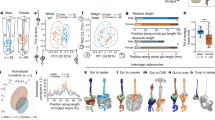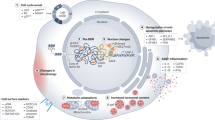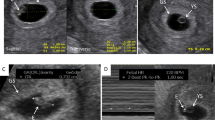Abstract
IN 1966 New1 described a technique for growing the rat foetus in vitro and pointed out the advantages of homologous serum as a culture medium. I have compared the growth and development of the rat foetus in vivo and in vitro in order to assess the suitability of this animal for experiments in teratogenesis. If good growth and differentiation of normal embryos occur in vitro, then a simple experimental system exists in which the effects of various teratogens can be examined.
This is a preview of subscription content, access via your institution
Access options
Subscribe to this journal
Receive 51 print issues and online access
$199.00 per year
only $3.90 per issue
Buy this article
- Purchase on Springer Link
- Instant access to full article PDF
Prices may be subject to local taxes which are calculated during checkout
Similar content being viewed by others
References
New, D. A. T., J. Reprod. Fertil., 12, 509 (1966).
Lowry, O. H., Rosebrough, N. J., Farr, A. L., and Randall, R. J., J. Biol. Chem., 193, 265 (1951).
Author information
Authors and Affiliations
Rights and permissions
About this article
Cite this article
BERRY, C. Comparison of in vivo and in vitro Growth of the Rat Foetus. Nature 219, 92–93 (1968). https://doi.org/10.1038/219092a0
Received:
Revised:
Issue Date:
DOI: https://doi.org/10.1038/219092a0
This article is cited by
Comments
By submitting a comment you agree to abide by our Terms and Community Guidelines. If you find something abusive or that does not comply with our terms or guidelines please flag it as inappropriate.



